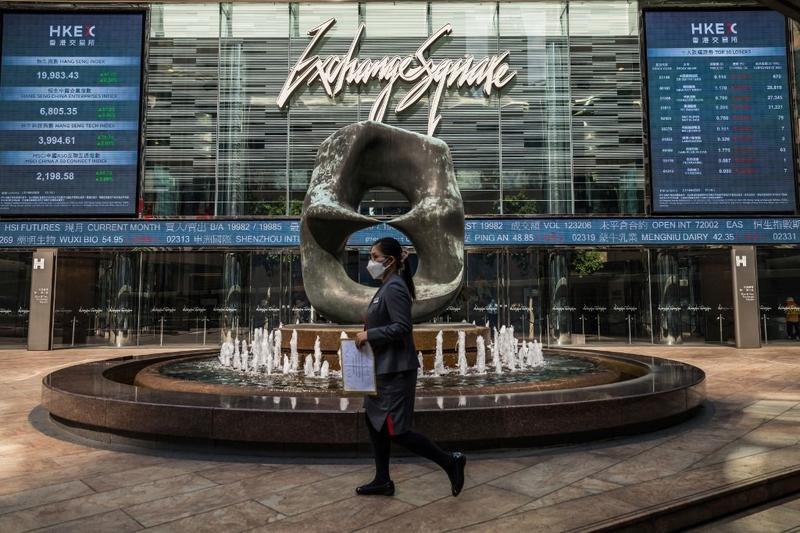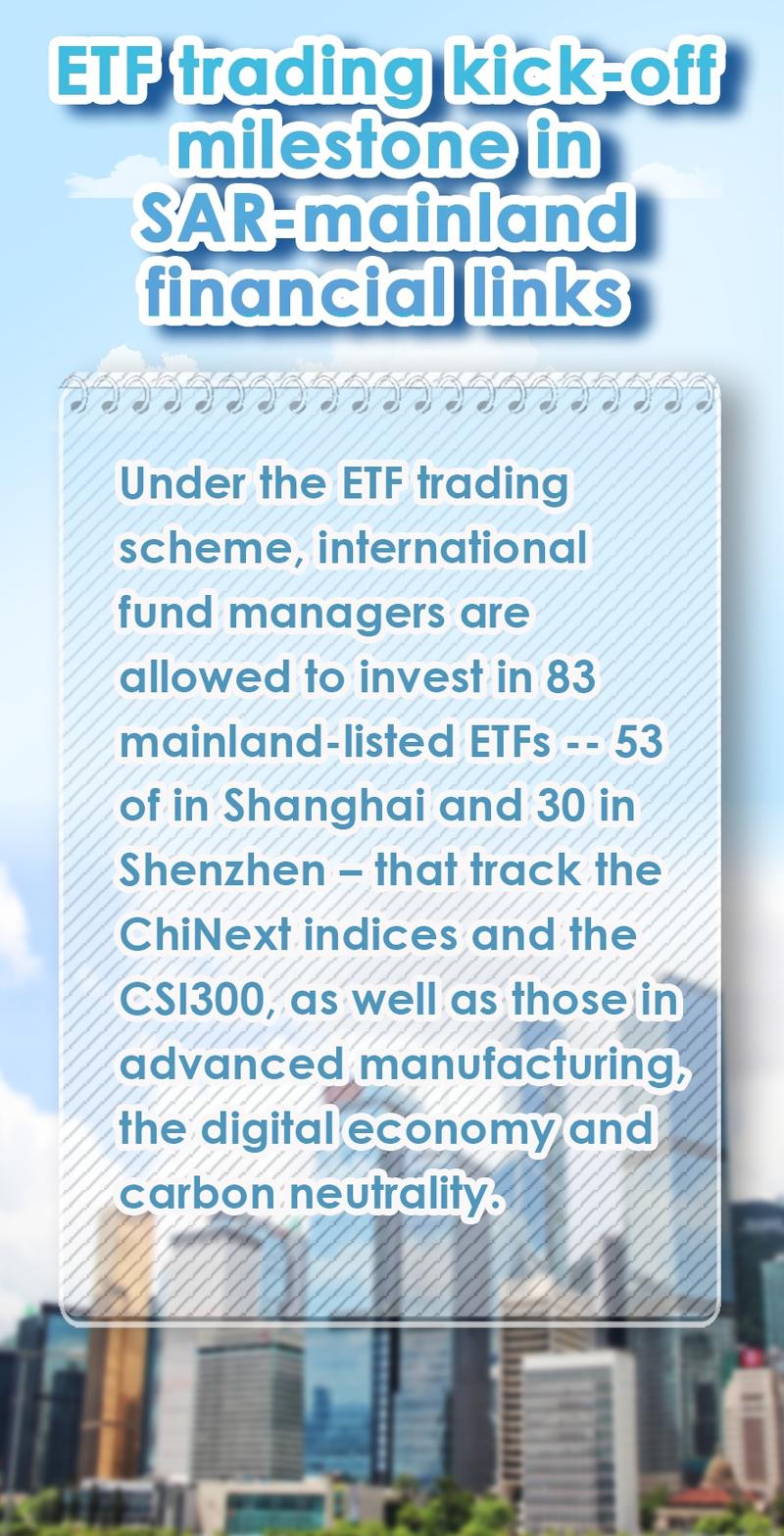 A woman walks past Exchange Square which houses the Hong Kong Stock Exchange in Hong Kong on April 27, 2022. (DALE DE LA REY / AFP)
A woman walks past Exchange Square which houses the Hong Kong Stock Exchange in Hong Kong on April 27, 2022. (DALE DE LA REY / AFP)
HONG KONG / BEIJING -Trading in exchange-traded funds on the Stock Connect linking Hong Kong and the Chinese mainland kicked off on Monday, marking a milestone in deepening financial links between the special administrative region and the mainland.
The ETF trading debut came on the heels of a holiday break marking the 25th anniversary of the establishment of the Hong Kong Special Administrative Region. It aims to solidify the city’s unique role as a super-connector between the Chinese mainland and the world.
The ETF trading debut came on the heels of a holiday break marking the 25th anniversary of the establishment of the Hong Kong Special Administrative Region. It aims to solidify the city’s unique role as a super-connector between the Chinese mainland and the world
Under the ETF trading scheme, international fund managers are allowed to invest in 83 mainland-listed ETFs -- 53 of in Shanghai and 30 in Shenzhen – that track the ChiNext indices and the CSI300, as well as those in advanced manufacturing, the digital economy and carbon neutrality.
Investors on the mainland can trade in four Hong Kong-listed ETFs -- the Tracker Fund, HSCEI ETF, CSOP HS Tech and iShares Tech.
ALSO READ: Mainland, HK to launch rate 'Swap Connect' in 6 months
Nicolas Aguzin, chief executive officer of Hong Kong Exchanges and Clearing, which runs the city’s bourse, said the inclusion of ETFs is a landmark upgrade for the Connect Scheme that can meet the higher requirements of various parties in the market and help turn Hong Kong into an ETF hub.
“ETFs are among the fastest-growing segments in Hong Kong’s financial markets. Their inclusion in the Stock Connect signifies our ambition to enhance our ETF franchise and reinforce Hong Kong’s position as Asia’s ETF marketplace,” Aguzin said.
The inclusion of ETFs in stock connect programs will facilitate investment for both domestic and overseas investors, and help asset managers and brokers of the mainland and Hong Kong further improve their management and service, said Cai Jianchun, general manager of the Shanghai Stock Exchange, at Monday's online launch ceremony.
A total of 437 ETFs are currently traded on the Shanghai Stock Exchange, with a market capitalization of 1.2 trillion yuan ($178.9 billion) and turnover of 6.6 trillion yuan, data showed.
ALSO READ: Inclusion of ETFs in Stock Connect to invigorate market

According to Hong Kong Stock Exchange, trading in more than 130 locally-listed ETFs exceeds HK$11 billion ($1.41 billion) daily -- up from an average daily turnover of HK$6.4 billion in 2020, with assets under management valued at more than HK$430 billion.
As an investment product widely recognized by domestic and overseas investors, ETF has the advantages of diversified investment, openness, low transaction cost and high efficiency, said Sha Yan, general manager of the Shenzhen Stock Exchange.
The inclusion of ETFs will enrich cross-border investment products, provide more investment convenience and opportunities for domestic and overseas investors, and promote the sustained, stable and healthy development of both the mainland and Hong Kong market, she added.
Thomas Fang Dongming, head of China Global Markets at UBS, expects the ETF link to lead to a marginal increase of about 10 percent in trading and capital volumes in the A-share market.
READ MORE: Mainland-HK bond connect program approved
He said the inclusion of ETFs will set another benchmark for maintaining the high degree of openness in mainland financial markets because, for the first time, the Stock Connect has been expanded beyond stock trading. “Against the backdrop of global capital markets being affected by macroeconomics, geopolitics, and the COVID-19 pandemic and other uncertainties this year, this is a morale booster for overseas investors.”
With Xinhua inputs


